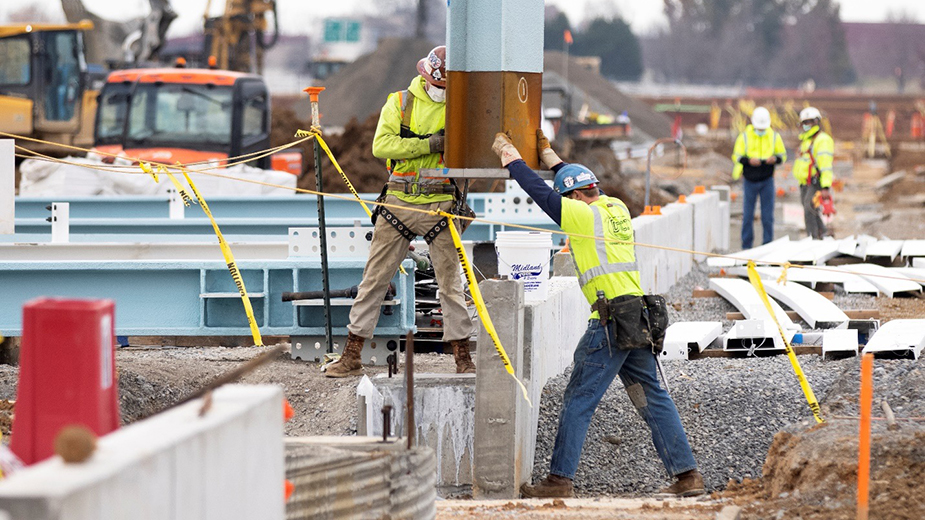DETROIT – General Motors is forming a joint venture with Posco Chemical of South Korea to build a North American battery materials plant as it brings more steps in the electric vehicle supply chain under its umbrella.
The Detroit automaker announced Dec. 1 that details of the venture are being worked out, including investment amounts and the plant location. GM said the factory will supply materials to make cathodes, the energy center of a battery that amounts to 40% of the cost.
The battery materials plant will employ hundreds of people and will start making materials in 2024, said Doug Parks, GM’s global product development and supply chain head.
The plant will supply four North American battery cell factories that GM says it plans to build. Two of those plants – in Lordstown and Spring Hill, Tenn. – are under construction.
“Scaling battery production is central to our strategy to drive mass adoption of EVs,” Parks told reporters.
“I think this helps to solidify the supply chain and add security to it.”
Automakers are racing to line up suppliers for scarce battery materials and components in anticipation of a widespread shift from internal combustion vehicles to those powered by electricity.
GM plans to build 30 electric vehicles globally by 2025 and says it will spend $35 billion between 2020 and 2025 on electric and autonomous vehicles.
The new plant will make materials for GM’s new Ultium battery chemistry, using nickel, cobalt, manganese and aluminum. A cathode is the negative terminal where current leaves a battery,
– Associated Press
Tennessee Plant Takes Shape
SPRING HILL, Tenn. – The first steel went up Dec. 1 for the Ultium Cells LLC battery cell manufacturing plant in Spring Hill, Tenn. The 2.8 million-square-foot site will mass produce battery cells for electric vehicles and create more than 1,300 jobs.
The plant will use the most advanced and efficient battery cell manufacturing processes to power the all-electric Cadillac Lyriq, according to Ultium.
Ultium Cells, a joint venture between General Motors and LG Energy Solution, will mass produce Ultium battery cells to advance the push for a zero-emissions, all-electric future.
The forthcoming Ultium plant in Lordstown will equal the size of 30 football fields and create more than 1,200 jobs.
Pictured: The first steel goes up Dec. 1 at the Ultium Cells battery cell manufacturing plant under construction in Spring Hill, Tenn. (Photo by Wade Payne for Ultium.)
